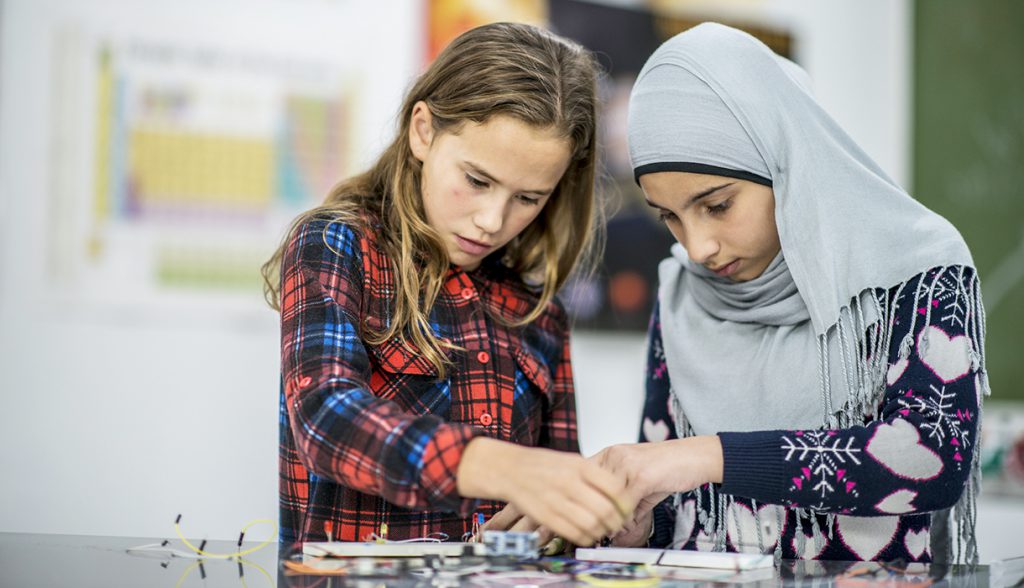Girls Are More Engaged When They’re ‘Doing Science’ Rather Than ‘Being Scientists’

Asking young girls to “do science” leads them to show greater persistence in science activities than does asking them to “be scientists,” researchers at New York University and Princeton University find. The study results are published in Psychological Science, a journal of the Association for Psychological Science.
“Describing science as actions, by saying ‘let’s do science,’ leads to more science engagement than does describing science in terms of identities, by asking them to ‘be scientists,’” explains Marjorie Rhodes, an associate professor in NYU’s Department of Psychology and the senior author of the study.
“These effects particularly hold for children who are the target of stereotypes suggesting that they might not be the kind of person who succeeds in science—in this case, girls,” she adds.
These findings suggest that efforts encouraging girls to enter science—a field in which they are underrepresented—might benefit from focusing on describing the activity of doing science rather than on encouraging children to adopt scientist identities, at least in early childhood.
“The roots of gender disparities in science achievement take hold in early childhood,” Rhodes observes. “This research identifies an element of children’s environments that could be targeted to reduce early gender differences in science behavior among young children.”
Rhodes and her coauthors, who include Princeton’s Sarah-Jane Leslie, note that the messaging children often receive through television shows centers on identity rather than action when it comes to science.
In the newly published Psychological Science work, the researchers conducted four studies with children aged 4 to 9 years old. Here, the children received an introduction to science that described science as an identity (“Let’s be scientists! Scientists explore the world and discover new things!”) or as action (“Let’s do science! Doing science means exploring the world and discovering new things!”).
Children were then asked to complete a new science game designed to illustrate the scientific method. Persistence was measured by how long they continued to play this game.
Notably, girls who were initially asked to “do science” showed more persistence on the subsequent science game than did girls who had been asked to “be scientists.”
By contrast, the effects of language for boys were more variable. For instance, one of their studies found that boys younger than 5 years old showed greater persistence when language was action-oriented while those older than 5 revealed higher levels of persistence when language was identity-oriented.
Overall, these findings suggest that identity-focused language can undermine persistence in some children as they acquire new skills, particularly when cultural stereotypes lead children to question if they hold the relevant identity.
Additional coauthors on the work include Kathryn Yee, a researcher in NYU’s Department of Psychology at the time of the study, and Katya Saunders, a postdoctoral researcher in NYU’s Department of Psychology.
This research was supported, in part, by a grant from the Eunice Kennedy Shriver National Institute of Child Health and Human Development of the National Institutes of Health (R01HD087672).
All data, materials, and analytic code are publicly available via the Open Science Framework. This article has received the badges for Open Data and Open Materials.





APS regularly opens certain online articles for discussion on our website. Effective February 2021, you must be a logged-in APS member to post comments. By posting a comment, you agree to our Community Guidelines and the display of your profile information, including your name and affiliation. Any opinions, findings, conclusions, or recommendations present in article comments are those of the writers and do not necessarily reflect the views of APS or the article’s author. For more information, please see our Community Guidelines.
Please login with your APS account to comment.